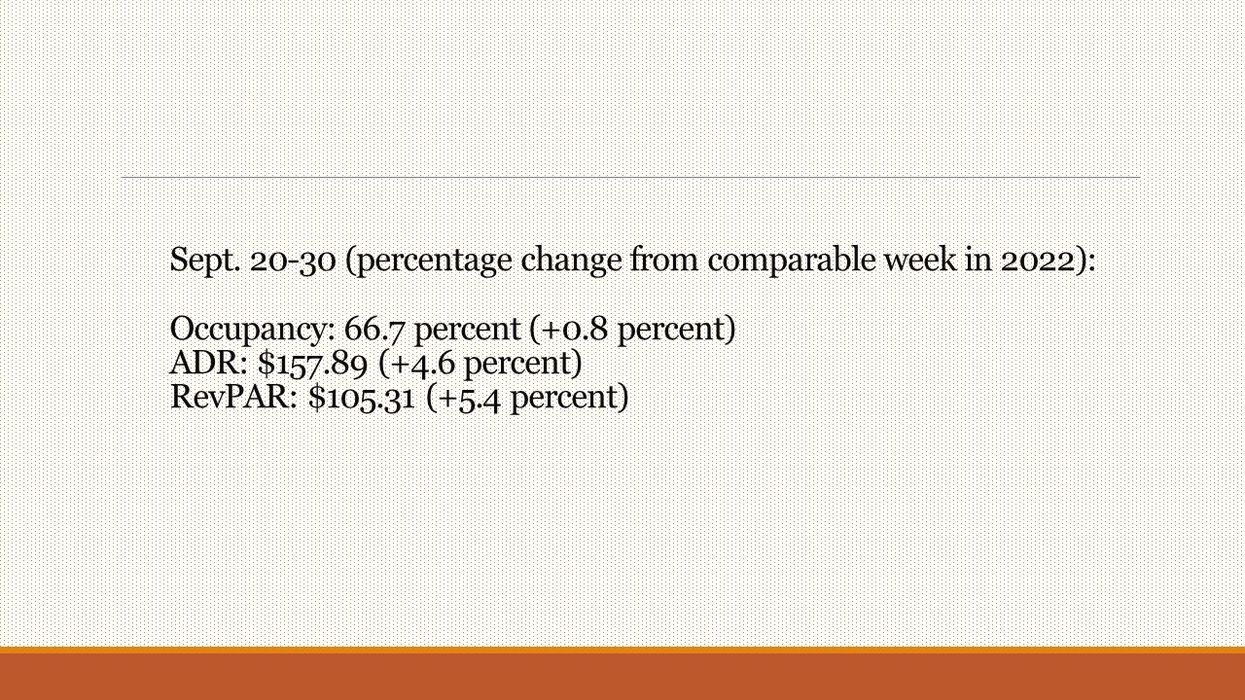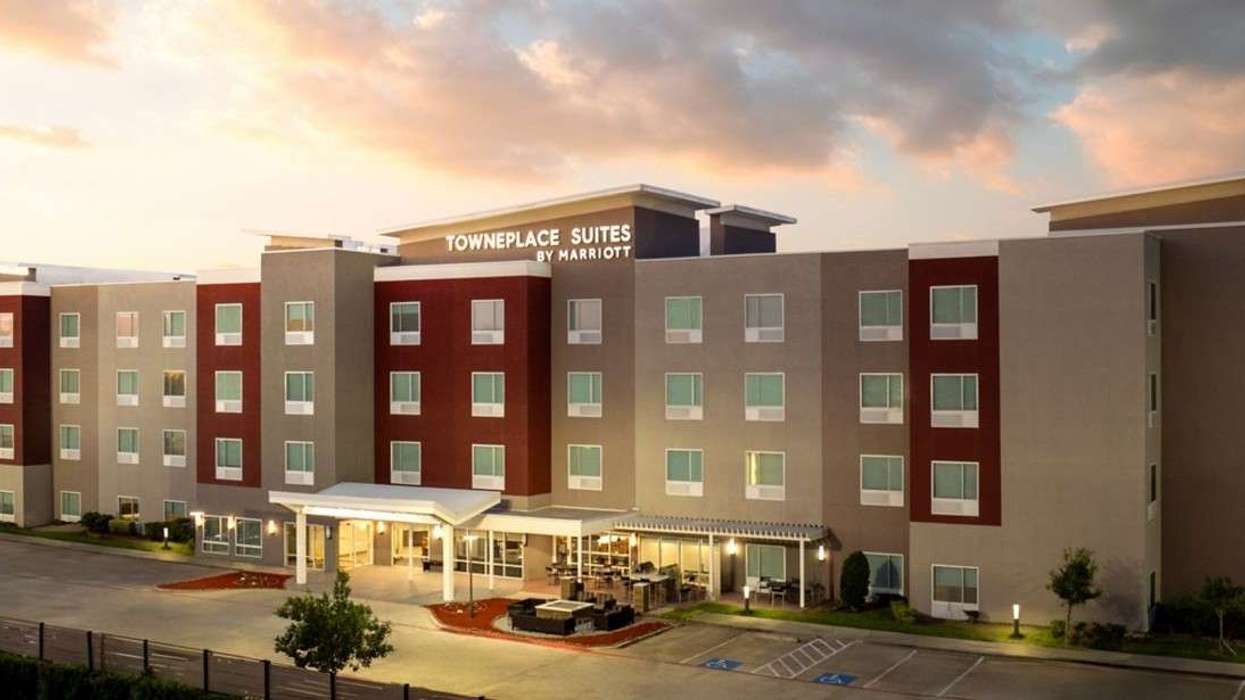U.S. HOTEL PERFORMANCE saw a decline in the last week of September compared to the previous week, as expected, according to CoStar. However, there was an improvement in year-over-year comparisons, particularly in occupancy due to a favorable Rosh Hashanah calendar shift.
Occupancy stood at 66.7 percent for the week ending Sept.30, marking a slight decrease from the preceding week's 68.5 percent, and a 0.8 percent year-over-year rise. ADR was $157.89, down from the prior week's $164.97, but showed a 4.6 percent increase compared to the previous year. RevPAR also experienced a drop to $105.31, compared to the previous week's $112.96, yet still represented a 5.4 percent rise from 2022.
Along with the Rosh Hashanah calendar shift, Yom Kippur observance resulted in lower weekday levels, CoStar said.
The top 25 markets exhibited growth across all days of the week due to more favorable year-over-year comparisons. San Francisco/San Mateo saw significant year-over-year growth in occupancy, rising by 10.9 percent to reach 83.2 percent. Moreover, RevPAR increased by 22.6 percent, reaching $215.61.
Washington, D.C. also achieved over 20 percent growth in RevPAR, surging by 20.3 percent to reach $154.13.
Oahu Island saw a 10.3 percent increase, reaching 79 percent, while Minneapolis experienced a 10.0 percent rise, reaching 67.1 percent, marking them as the other two markets with double-digit occupancy growth.
New York City once again recorded the highest ADR increase, rising by 13.7 percent to reach $342.45. Atlanta experienced the most significant declines in occupancy, dropping by 6.4 percent to 64.6 percent, and in RevPAR, falling by 7.7 percent to $79.56.






